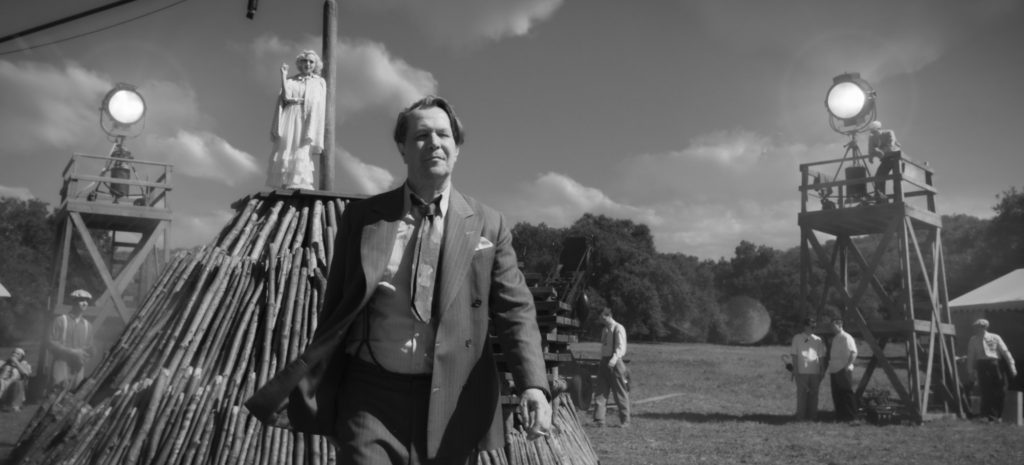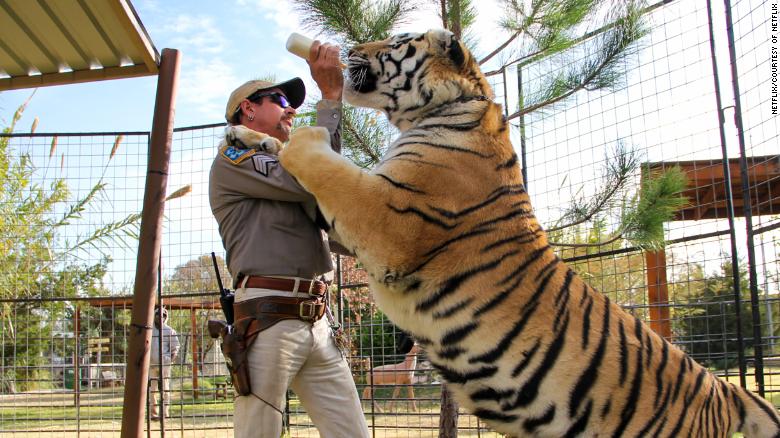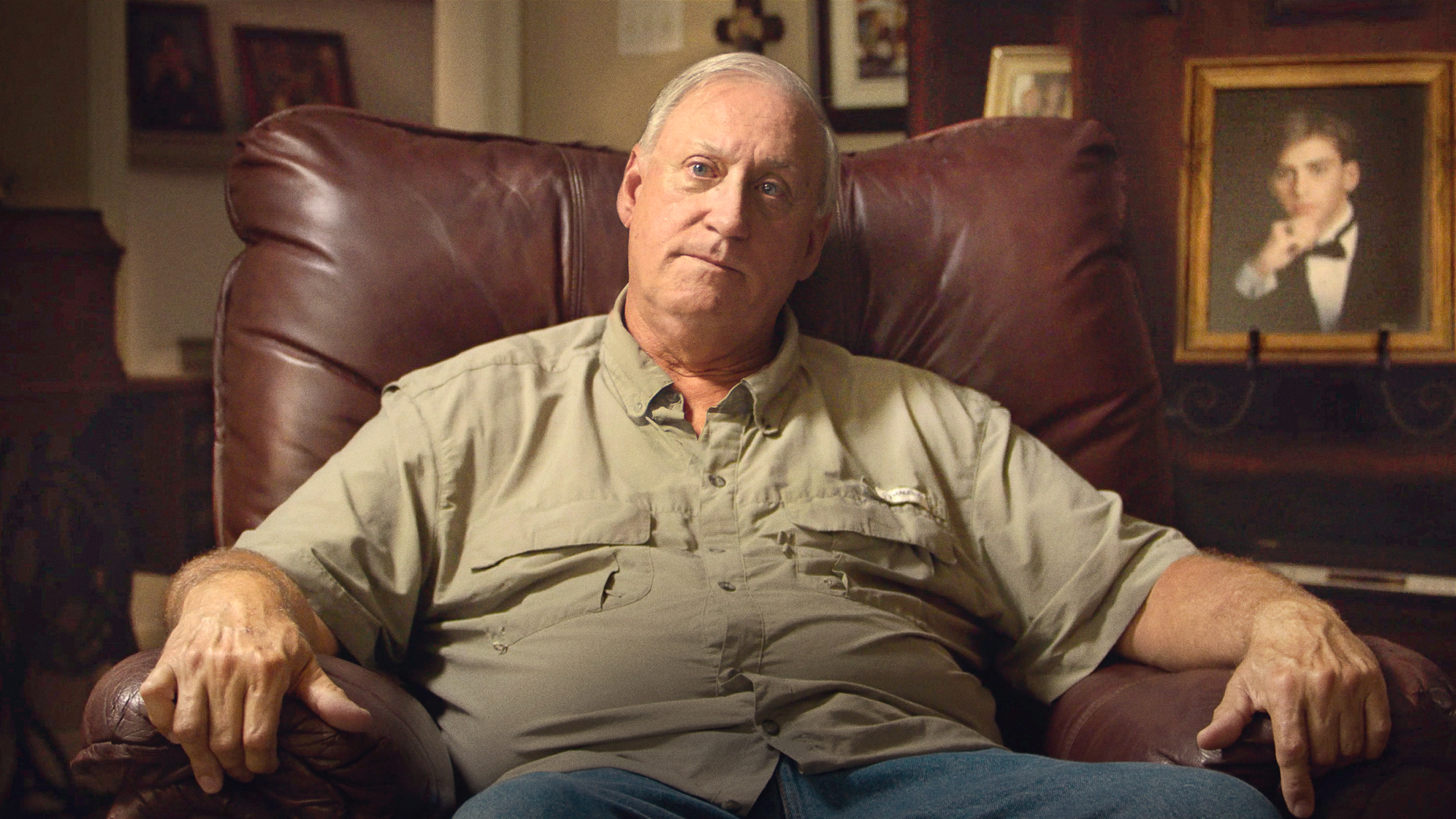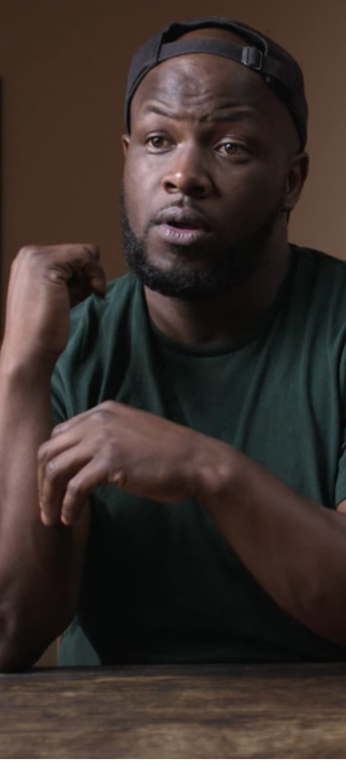
In one history of the movies, Citizen Kane screenwriter Herman Mankiewicz might look like a footnote. The former playwright had a hand in many famous pictures, including The Wizard of Oz, but most went uncredited. He was the smartest guy in the room, a drunk and a gambler who was dead at 55. And his kid brother, Joe, who directed and wrote All About Eve, would go on to be the better-known Mankiewicz.
But in another version of Hollywood history, the one David Fincher tells in the glorious new film Mank, Herman Mankiewicz as portrayed by Gary Oldman was early Hollywood in all its greatness and tragedy. Working off a crackling screenplay by his late father Jack Fincher, David Fincher has made Mank into an incisive look at a complex man who was once William Randolph Hearst’s favorite dinner companion but by 43 was a Hollywood has-been — washed up and laid up while writing what would become Citizen Kane in a bungalow in Victorville in 1940.
Even though it’s filmed in black and white with a big band score (from Trent Reznor and Atticus Ross) and made to look and sound like a film of the time, this isn’t some dreamy, nostalgic writer-as-hero tale. It doesn’t take a writer to know that there’s nothing more deathly boring and uncinematic as the writing process. Nor is it a referendum on the old “who really deserves credit for Citizen Kane” debate.
Instead, Mank is about the context around Citizen Kane, the tarnished realities of Hollywood’s Golden Age, the seductive power of filmed imagery and how a man who was once a friend not just to Hearst, but to Marion Davies, too, would decide to write about them against the advice of everyone in his life.
In order to do this, Fincher flashes back to 1934, when Mank is riding high in the studio system, getting invited to all the parties, helping his little brother Joe (Tom Pelphrey) get a foot in the door and hanging around Hearst (an intimidating but warm Charles Dance) and Davies (an outstanding Amanda Seyfried). But outside of the opulence of the movie business there is the Depression going on and worldwide unrest that will soon lead to another war.
In one scene Louis B. Mayer (Arliss Howard) walks Mank and Joe through the studio lot while giving a lively speech about the “dream factory,” only to end up on a big soundstage where he tells everyone from movie stars to grips that they’ll have to take a 50% pay cut so the “family” can survive the Depression. The hypocrisy of it all is getting too much for Mank to handle with his usual sarcasm. He already believes he’s slumming it in his mercenary procession and is unafraid to speak his mind to the suits around him, who tolerate him until they don’t.
By 1940, Mank is a Hollywood exile who agrees to write a script for the 24-year-old radio wunderkind Orson Welles (Tom Burke). Bedridden from a car accident, he dictates dialogue and scribbles notes that his prim British assistant Rita (Lily Collins) puts through a typewriter.
There are more questions than answers when it comes to Mank, including why he seemed so intent on self-sabotage and why his wife Sarah (Tuppence Middleton) stayed around. Although pushing the limits of what a 43-year-old man looked like in 1940, Oldman is naturally terrific at playing the guy who refuses to suffer fools and is always ready with a comeback, but who takes it too far too often (the tragedy of the arrogant drunk).
The film is wry and observant about the movie business and all the things that haven’t changed, as well as those that have. That it’s a Netflix production is a deafening statement of its own. But it also has a beating heart thanks in large part to Seyfried’s Davies, who beautifully reclaims the life and agency of a woman who history and Citizen Kane reduced to Hearst’s showgirl mistress. Mank and Davies are kindred spirits and she is the moral compass of the ridiculous world they inhabit. When Mank is eviscerating everyone in a drunken rant, you’re looking for her reaction.
It makes the question of why he ended up writing what he did ever more vexing toward the end. Was it a paycheck? A bout of moral conscience? An attempt to burn bridges? A combination of all? Or something else altogether?
Mank isn’t interested in providing the answers, which is just as well. It’s simply telling a story about a man behind so many of our movie memories and making a new one in the process. And it is one of the year’s best.





